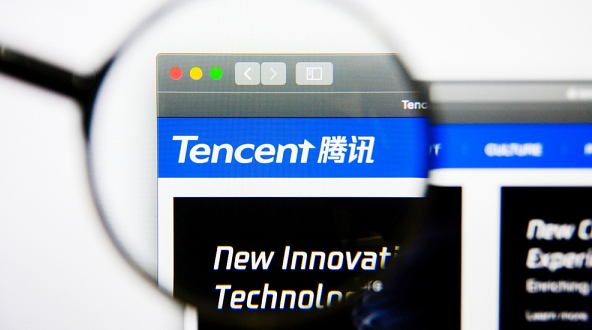
China’s Big Tech Tencent has decided to increase capital expenditures in the artificial intelligence sector this year, joining the competition for AI investment by Chinese companies, which is heating up after the success of DeepSeek.
According to Bloomberg and Reuters on the 19th, Tencent Chairman Liu Zhiping told reporters after the earnings announcement the previous day that he would increase capital expenditure to the ‘early 10% range’ of sales this year, citing AI as the core of strategic investment.
Tencent’s capital expenditure jumped from $3.4 billion in 2023 to $10.7 billion last year, accounting for 12% of its revenue. Tencent also spent 39 billion yuan on its AI division in the fourth quarter of last year.
Chairman Ryu said, “We will continue to increase AI investment,” adding, “We will expand investment in open source capabilities, including its own AI model, Hunyuan.”

However, compared to last year, Tencent’s share of capital expenditure to sales this year has not increased significantly (flat).
James Mitchell, Chief Strategy Officer, said the company will respond appropriately to demand this year with spending soaring last year, stressing that capital spending in the fourth quarter was the highest among Chinese listed technology companies.
Chairman Ryu also opened up that there is a possibility of raising the spending plan if demand for services increases.
The AI model “R1” released by Chinese startup DeepSeek is less expensive and has similar performance compared to the AI model of big U.S. tech companies that pour out astronomical funds, raising expectations that China is also worth competing in the AI field.
Last month, even Chinese President Xi Jinping held a rare sit-down meeting with private technology companies, and companies are also announcing investments.
In particular, Alibaba founder Jack Ma, who has been the “main example” of the Chinese authorities’ regulation of Internet companies, also attended the forum, and Alibaba is leading the competition last month by saying that it plans to invest more than 380 billion yuan in cloud and AI infrastructure.
Honor, an independent smartphone brand from Huawei, has decided to invest $10 billion in AI over the next five years, and ByteDance has set its capital expenditure at more than 150 billion yuan this year.
Meanwhile, Tencent announced the previous day that it recorded sales of 172.5 billion yuan in the fourth quarter of last year, up 11% year-on-year, thanks to strong performance in the game sector. This exceeds the market forecast of 168.9 billion yuan compiled by LSEG.
Amid a rally in Chinese tech stocks, Tencent is threatening Taiwan’s TSMC, the world’s largest foundry company, to become the top Asian company in market capitalization, Bloomberg said.
TSMC shares have fallen about 11% this year, while Tencent shares have risen about 30%, reducing the gap in market capitalization between the two companies to the lowest level since the end of 2023.
According to the company market cap, a website that compiles market cap rankings on the 20th in Korea time, TSMC, the No. 1 player in the Asian listed market cap ranking (excluding the Middle East), is $91 billion, ahead of Tencent, which is No. 2 at $634.2 billion.
JENNIFER KIM
US ASIA JOURNAL



